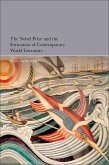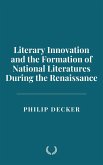The Nobel Prize in Literature, established by Alfred Nobel in 1901, has evolved over more than a century, becoming both a prestigious recognition of literary achievement and a cultural institution that reflects broader political, social, and intellectual currents. This prize, initially focused on traditional literary forms and national identities, has expanded its scope to include voices from diverse cultures, political backgrounds, and genres, addressing global issues and offering a platform for writers who challenge the status quo. The Prize's selection process has historically mirrored shifts in cultural values, from nationalistic literary movements to the embrace of postcolonial, feminist, and political writers. However, as the digital age transforms the way literature is produced, consumed, and defined, the Nobel Prize faces significant challenges in maintaining its relevance. The rise of self-publishing, digital storytelling, and multimedia engagement has democratized literary production, prompting questions about what constitutes literary excellence in a world where literature is no longer confined to the printed page. As the global literary landscape becomes more fragmented and diverse, the Swedish Academy's decisions will play a crucial role in shaping the future of literature and its place in society. In the digital age, the Nobel Prize in Literature must balance tradition with innovation, ensuring it continues to honor works that transcend borders and genres while adapting to the ever-evolving cultural environment.
Dieser Download kann aus rechtlichen Gründen nur mit Rechnungsadresse in A, B, CY, CZ, D, DK, EW, E, FIN, F, GR, H, IRL, I, LT, L, LR, M, NL, PL, P, R, S, SLO, SK ausgeliefert werden.









